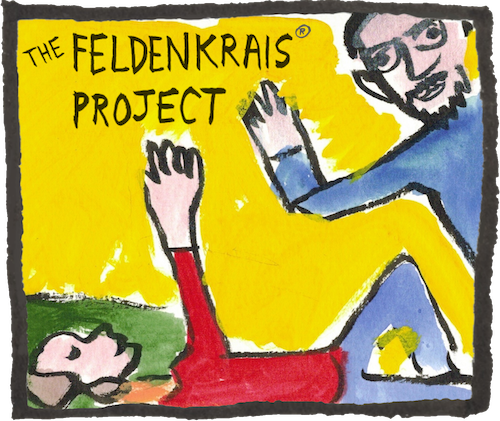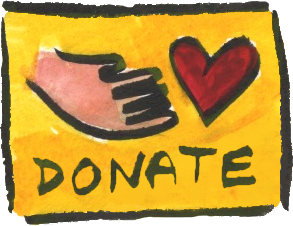Disclaimer: The Feldenkrais Method of somatic education is presented on this website for educational purposes and self-guided study only. The Method and all recordings, live online classes, pages, blog posts, and documents of any kind available from this website are not intended to be a substitute for professional help or medical treatment. Nothing on this website is intended to diagnose or treat any pathology, disease or injury of any kind. This website, all media files found on it, all live classes available through it, The Feldenkrais Project, Twin Cities Feldenkrais, LLC, and the creator of any and all of these files, and anyone featured on these files, cannot be held responsible for any injuries or discomfort that might arise while doing these lessons. If you have any doubts about whether doing Feldenkrais lessons is appropriate for you, be sure to consult your medical practitioner.
The following are service marks or certification marks of the Feldenkrais Guild of North America: Feldenkrais®, Feldenkrais Method®, Functional Integration®, Awareness Through Movement®, ATM®, FI®, Guild Certified Feldenkrais Teacher®, and Guild Certified Feldenkrais PractitionerCM.





I really like the work that includes the tongue in this practice. I noticed that not only the neck but the throat was more relaxed. A good one for singers.
Having done this for three successive days I feel that my head is significantly more erect – and I feel taller. May be the most relaxing lesson I’ve done.
Fabulous. I had been considering renaming this “Relaxing Your Jaw and Neck” as I assemble lessons for our upcoming jaw/neck/shoulders Deep Dive. I think you just sealed the deal on that!
UPDATE: Done! (This lesson used to be called “Comforting Your Jaw and Neck”). And here’s the Jaw, Neck, and Shoulders Deep Dive.
The right side of my neck has been feeling tight (for years). I definitely felt that my bones had released somehow after this. Also, I appreciated how calmly soothing this exercise was… as life can be too stressful, so thanks Nick! I am only starting on this Feldenkrais journey, but when I dedicate some time, I am reaping the benefits. Amazing how so little can do so much!
Thank you Nick for this, your lessons have really been life changing for me.
Somehow the biggest lasting change from this lesson is in my low back and pelvis, easing a persistent tension. Also found the effect on my breathing depending on the tongue position was really profound which is something I can focus on to ease tension in my day.
I chronically clench the right side of my jaw and, boy, was that obvious as I did this lesson! This showed me that I clearly need to be gentler and smaller with my strategies. I have more work to do, but I definitely felt moments of relaxation in my face, mouth and jaw that I haven’t felt for a long time.
Hi
I was wondering why I would feel a bit nauseated when it came to moving the tongue? I’ve had tmj for many years and I have a lot of tension in my neck and shoulders. I only did this lesson once and only got up to the tongue part (about 20 minutes in) but will the nausea go away eventually?
Thank you so much for all these lessons. They’ve been very valuable to me especially over the course of the pandemic.
Hard to say exactly, but nausea is a sign to stop – I’m glad you did. You can try again later if/when you like, but do the movements smaller, more slowly, more gently. Maybe with the sense that you’re only imagining them. Or if you notice the work on one side of your mouth is more comfortable than the other, stick with that for now. Just keep on making adjustments toward comfort and ease, and things will change and almost certainly improve.
My favourite so far. So helpful with my problematic neck, jaw and pelvis. Thank you Nick. Love your voice too – so calm, clear and relaxing.
Thank you Nick. I love this lesson, it helps so much. I was amazed at how much my jaw and tongue position influenced my walking ease at the end.